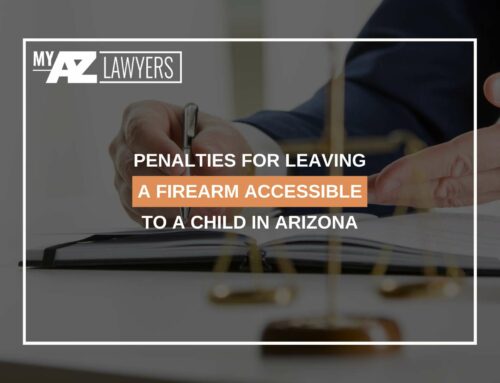Table Of Contents
Looking To Get Divorced Quickly In Arizona? Here’s Why You Should Take Your Time
Getting married is a decision that shouldn’t be taken lightly, because getting divorced can be an even more difficult decision. Once you have poured so much of yourself into a relationship, contemplating leaving a marriage is weighed down by the sunken cost fallacy. On the other hand, some clients come to us eager to dissolve their marriages so they can move on emotionally, financially, etc. As eager as you may be to stop giving your good years to someone you know you won’t be with forever, it is often best to pause and plan before heading straight to divorce court. There are certain issues, especially financial ones, that can be easier to control if you aren’t hasty with your divorce filing. Read on to learn more about the mistakes spouses make in divorce when they rush, and how to avoid them. To schedule your free consultation with one of the experienced Arizona family law professionals at My AZ Lawyers, call 480-470-1504.

The Mandatory Waiting Period For Divorce In Arizona
No matter how much you want to get divorced quickly, in Arizona, you will need to wait at least 60 days after filing your divorce for it to be finalized- but it could take much longer. This is set forth by A.R.S. § 25-329, ascribing a waiting period so the spouses can cool off and consider reconciliation, or begin negotiating agreements to avoid trial. Before you hastily file and serve a petition for divorce, consider that it will be at least 60 days before you will be considered legally single. There is no waiting period to get remarried after divorce in Arizona.
Impulsive Spending & Incurring New Debt
Even though inflation has brought up the cost of just about anything money can buy, retail therapy is still generally more affordable than traditional therapy. But treating yourself to a shopping spree and maxing out your credit cards isn’t the wisest pre-divorce investment. Just because your spouse is a joint account holder on your credit cards doesn’t necessarily mean you will get to split this bill. If your pre-divorce spending is extreme enough, it may constitute marital waste. Arizona courts have previously held that if one spouse spends excessively (in relation to the rest of the marriage) in the period leading up to divorce, this is marital waste that the other spouse can be credited for in property division. You should also monitor joint accounts and credit cards in case your spouse is committing marital waste against you.
Consider The Tax Implications
If your divorce is imminent but so is tax season, planning your divorce accordingly can help you maximize your tax refund. Depending on your household finances, it may save you more to file jointly while still married, or individually after divorce. Consult a financial professional or an attorney about this matter for guidance on your decision.
Hastily Selling Or Transferring Assets Before Divorce
Selling or giving away that motorcycle, expensive piece of jewelry, or other asset that reminds you of your future ex may seem like a reasonable move before a divorce- especially if it helps you assemble the funds to pay for your legal fees. But this might not be a smart move if you live in a community property state like Arizona. With very few exceptions, all assets and debts acquired during a marriage are considered both spouses’ property equally. So if you were to sell off your vintage sports car to furnish your new bachelor pad, your spouse may be entitled to pursue you for half of the sales proceeds if the vehicle was purchased during the marriage. The same goes for if you were to gift an expensive marital asset to a friend or family member before splitting from your spouse.
Another common mistake among those looking to rush the divorce process is cashing out their 401(k) or other retirement savings account. Just like a car, house, or a regular bank account, the contents of a 401(k) can be community property if the contributions were made with community property funds. Your retirement funds will be depleted quickly if they are subject to early withdrawal penalties, taxes, and property division in divorce.
Moving Out Of The Marital Home
In some relationships, it is a sign of respect to give one spouse their space during heated arguments. But fleeing to a loved one’s couch or even a rental to let tensions cool down can have negative repercussions in divorce. Absent some written agreement, your spouse may use your move out of the marital home as abandonment of that asset. This notion can be supported if your children remain with your ex in the marital home, as family law judges have an interest in not upsetting children’s routines.
Consider Clearing Debts With Bankruptcy Before Property Division
Getting divorced is notoriously expensive, and the more issues you have to pay lawyers to negotiate, the more it will cost. Having community property debts means paying lawyers to fight over who will have to pay them. If you want to focus your resources on assets that affect your life in a positive way, you and your spouse may want to consider filing a joint petition for bankruptcy before either of you files a petition for divorce. When your debts are cleared through bankruptcy, your divorce lawyers will only need to negotiate the division of your most important assets.
Bankruptcy before divorce isn’t feasible for every married couple. This strategy works best for couples who qualify for chapter 7 bankruptcy, as it only lasts a few months, compared to the 3-5 years it takes to complete a chapter 13 bankruptcy. The automatic stay that bankruptcy provides to protect from creditors will also prevent two spouses from finalizing a divorce. On the other hand, you and your spouse might only qualify for chapter 7 bankruptcy after your household has been split into two. Another concern is making sure your assets would be protected by exemptions in a bankruptcy filing. Schedule your free consultation with an Arizona legal professional with experience in both divorce and bankruptcy by calling 480-470-1504.
Discuss The Issues Most Relevant To Your Situation With An Experienced Arizona Divorce Attorney
Not all of the potential divorce issues discussed above will apply to your situation. But discerning which ones do apply from those that are irrelevant can be tricky without the appropriate legal knowledge and experience. The resolution of your divorce can impact your financial situation for years to come, if not the rest of your life. That’s why you deserve family law representation who will work tirelessly to achieve a fair outcome in any family law matter you may experience in Arizona. Don’t rush into divorce and make mistakes that could cost you dearly. Our Arizona Law team can help you slow down and iron out the wrinkles that could cause waves later down the road if not addressed in the present. Learn more about the ins and outs of Arizona family law that could affect your divorce if filed in a rush. Schedule your free consultation with My AZ Lawyers today by calling 480-470-1504.

MY AZ LAWYERS
Email: [email protected]
Website: www.myazlawyers.com
Mesa Location
1731 West Baseline Rd., Suite #100
Mesa, AZ 85202
Office: 480-448-9800
Phoenix Location
343 West Roosevelt, Suite #100
Phoenix, AZ 85003
Office: 602-609-7000
Glendale Location
20325 N 51st Avenue Suite #134, Building 5
Glendale, AZ 85308
Office: 602-509-0955
Tucson Location
2 East Congress St., Suite #900-6A
Tucson, AZ 85701
Office: 520-441-1450
Avondale Location
12725 W. Indian School Rd., Ste E, #101
Avondale, AZ 85392
Office: 623-469-6603











